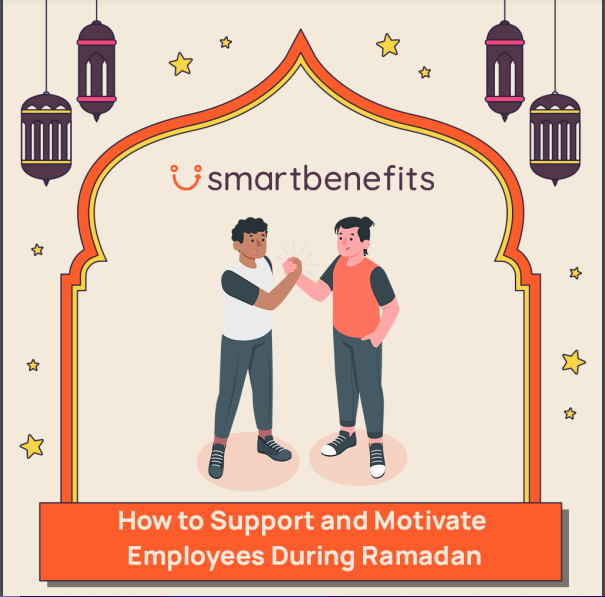Ramadan is widely considered to be the holiest month of the entire year. It is a period of fasting, prayer, reflection, and communal service for millions of Muslims worldwide. Since Ramadan is observed yearly, many of us who observe fasting may be used to it.
However, young people, people with chronic conditions like diabetes, or those living away from their homes can face difficulties in fasting during workdays. For businesses with hectic work schedules or demanding routines, accommodating and supporting such employees in observing their fast can develop a feeling of inclusivity and respect.
Personal Lessons From Ramadan
Fasting during Ramadan teaches us self-control by controlling all our basic urges for a considerable amount of time during the day. A habit of control and moderation over the whole month has its effects on our lifestyle, habits, and preferences.
Fasting develops a sense of humility, discipline, restraint, self-control, and an awareness of those less well-off than ourselves. Staying hungry all day raises awareness about those who go hungry out of need and not a choice.
It is a powerful feeling to share a state of fasting for the whole month, restraining ourselves, and it encourages solidarity and pro-social behavior.
Workplace Productivity in Ramazan
Against popular belief, we can improve our workplace efficiency in the month of Ramazan. Fasting teaches us to focus on our tasks with self-discipline and to develop empathy for others. These qualities roll over from our personal to professional lives, where we can perform better through these principles.
Employees can tackle their routine tasks and perform better with better focus and empathy. Better performance and efficiency bring the economic benefits linked with these qualities.
As employees, we all aim to perform to the best of our ability, to give the best results, and to get better growth prospects. Ramadan is a time of fasting and self-reflection; it helps us perform our work tasks better and diligently.
The Principles of Ramadan in the Workplace
Self-Discipline:
Fasting teaches people to control their desires and impulses, improving time management and workplace focus. Setting clear goals and prioritizing tasks also help employees avoid distractions and stay on track.
Empathy:
Ramadan encourages compassion towards others, especially those less fortunate. Fostering a supportive and inclusive environment where team members sincerely care for each other’s well-being boosts productivity and morale.
Patience:
Ramadan emphasizes patience during long fasting hours. Similarly, in a professional setting, patience helps employees deal with challenges calmly, preventing overwhelm or frustration.
Gratitude:
Expressing gratitude for blessings through charity and community giving is central to Ramadan. At work, showing appreciation towards colleagues or superiors fosters positive relationships and enhances team spirit.
Self-Reflection:
Ramadan prompts individuals to seek forgiveness and personal growth. In the workplace, this means regularly assessing performance, seeking feedback, and actively improving in areas of weakness.
Benefits of Implementing These Principles at Work
Increased Focus and Productivity:
One of the key principles of Ramadan is self-discipline, which involves abstaining from food and drink during daylight hours. This practice can help improve focus and workplace productivity.
When employees are fasting, they become more mindful about managing their time efficiently and avoiding distractions. As a result, they can stay focused on their tasks and complete them more efficiently.
Enhanced Teamwork and Collaboration:
Another principle of Ramadan is community and solidarity. This principle can be applied in the workplace by encouraging employee teamwork and collaboration. By fostering a sense of unity, individuals are more likely to work together towards common goals, share ideas, support one another, and solve problems collectively. This improves efficiency and creates a positive work environment that stimulates creativity and innovation.
Improved Time Management Skills:
Another benefit of implementing Ramadan principles at work is improved time management skills. Fasting requires individuals to carefully plan their day around meals to avoid disrupting their fasting schedule.
This discipline also translates into better time management practices at work. Employees learn to prioritize tasks, set realistic deadlines, avoid procrastination, and use their working hours efficiently.
Enhanced Empathy and Understanding:
During Ramadan, Muslims experience firsthand hunger pangs throughout the day while going about their daily routines alongside non-fasting colleagues or clients.
This experience fosters empathy for others’ challenges or limitations personally during this holy month and professionally year-round within diverse workplaces or client interactions across different cultures or religions.
Improved Employee Well-being:
Implementing Ramadan principles also positively impacts employee well-being. Fasting has been linked to multiple health benefits, such as weight loss, improved digestion, better energy levels, and increased mental clarity. These factors contribute to an individual’s overall physical and emotional well-being.
Conclusion
The arrival of Ramadan represents a period of spiritual renewal as well as a time of economic vitality and social harmony. Through acts of generosity, increased consumer spending, hospitality and tourism boosts, and enhanced workplace productivity, Ramadan exerts a positive influence on businesses and economies worldwide.
As we embrace the values of compassion, unity, and resilience embodied by Ramadan, let us recognize and celebrate its profound impact on both individual lives and the broader global community.
As we immerse ourselves in the observance of Ramadan, let us extend our prayers for prosperity, harmony, and peace to all. May this blessed month be a beacon of hope, guiding us toward unity and understanding amidst diversity and adversity.
Let us endeavor for an end to strife and conflict, embracing the values of compassion and empathy in our interactions with one another.
May the spirit of Ramadan transcend boundaries and bring solace to hearts burdened by hardship. In pursuing righteousness and goodwill, may we find enduring peace and prosperity for all humanity.


Sadia Zaheer holds a Masters in Business Administration from IBA, Karachi. After working in several financial institutions in Client Management, Corporate Lending, Islamic Banking and Product Management she jumped careers to pursue a career in writing.
She is a Finance, Business and HR Development writer with four years of experience. She reads a lot and takes care of her multiple cats to remain calm.


